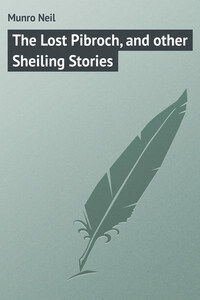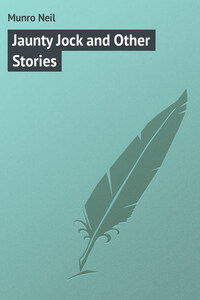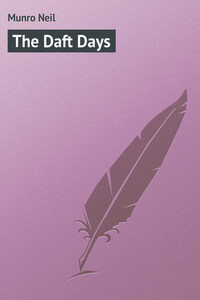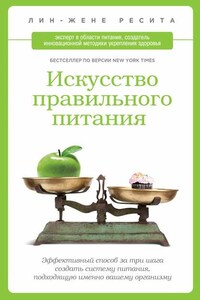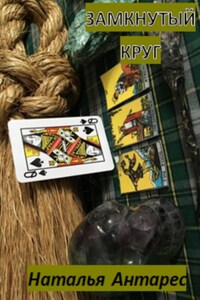TO the make of a piper go seven years of his own learning and seven generations before. If it is in, it will out, as the Gaelic old-word says; if not, let him take to the net or sword. At the end of his seven years one born to it will stand at the start of knowledge, and leaning a fond ear to the drone, he may have parley with old folks of old affairs. Playing the tune of the “Fairy Harp,” he can hear his forefolks, plaided in skins, towsy-headed and terrible, grunting at the oars and snoring in the caves; he has his whittle and club in the “Desperate Battle” (my own tune, my darling!), where the white-haired sea-rovers are on the shore, and a stain’s on the edge of the tide; or, trying his art on Laments, he can stand by the cairn of kings, ken the colour of Fingal’s hair, and see the moon-glint on the hook of the Druids!
To-day there are but three pipers in the wide world, from the Sound of Sleat to the Wall of France. Who they are, and what their tartan, it is not for one to tell who has no heed for a thousand dirks in his doublet, but they may be known by the lucky ones who hear them. Namely players tickle the chanter and take out but the sound; the three give a tune the charm that I mention – a long thought and a bard’s thought, and they bring the notes from the deeps of time, and the tale from the heart of the man who made it.
But not of the three best in Albainn today is my story, for they have not the Lost Pibroch. It is of the three best, who were not bad, in a place I ken – Half Town that stands in the wood.
You may rove for a thousand years on league-long brogues, or hurry on fairy wings from isle to isle and deep to deep, and find no equal to that same Half Town. It is not the splendour of it, nor the riches of its folk; it is not any great routh of field or sheep-fank, but the scented winds of it, and the comfort of the pine-trees round and about it on every hand. My mother used to be saying (when I had the notion of fairy tales), that once on a time, when the woods were young and thin, there was a road through them, and the pick of children of a country-side wandered among them into this place to play at sheilings. Up grew the trees, fast and tall, and shut the little folks in so that the way out they could not get if they had the mind for it. But never an out they wished for. They grew with the firs and alders, a quiet clan in the heart of the big wood, clear of the world out-by.
But now and then wanderers would come to Half Town, through the gloomy coves, under the tall trees. There were packmen with tales of the out-world. There were broken men flying from rope or hatchet. And once on a day of days came two pipers – Gilian, of Clan Lachlan of Strathlachlan, and Rory Ban, of the Macnaghtons of Dundarave.
They had seen Half Town from the sea – smoking to the clear air on the hillside; and through the weary woods they came, and the dead quiet of them, and they stood on the edge of the fir-belt.
Before them was what might be a township in a dream, and to be seen at the one look, for it stood on the rising hill that goes back on Lochow.
The dogs barked, and out from the houses and in from the fields came the quiet clan to see who could be here. Biggest of all the men, one they named Coll, cried on the strangers to come forward; so out they went from the wood-edge, neither coy nor crouse, but the equal of friend or foe, and they passed the word of day.
“Hunting,” they said, “in Easachosain, we found the roe come this way.”
“If this way she came, she’s at Duglas Water by now, so you may bide and eat. Few, indeed, come calling on us in Half Town; but whoever they are, here’s the open door, and the horn spoon, and the stool by the fire.”
He took them in and he fed them, nor asked their names nor calling, but when they had eaten well he said to Rory, “You have skill of the pipes; I know by the drum of your fingers on the horn spoon.”
“I have tried them,” said Rory, with a laugh, “a bit – a bit. My friend here is a player.”
“You have the art?” asked Coll.
“Well, not what yoo might call the whole art,” said Gilian, “but I can play – oh yes!I can play two or three ports.”
“You can that!” said Rory.
“No better than yourself, Rory.”
“Well, maybe not, but – anyway, not all tunes; I allow you do ‘Mackay’s Banner’ in a pretty style.”
“Pipers,” said Coll, with a quick eye to a coming quarrel, “I will take you to one of your own trade in this place – Paruig Dali, who is namely for music.”
“It’s a name that’s new to me,” said Rory, short and sharp, but up they rose and followed Big Coll.
He took them to a bothy behind the Half Town, a place with turf walls and never a window, where a blind man sat winding pirns for the weaver-folks.
“This,” said Coll, showing the strangers in at the door, “is a piper of parts, or I’m no judge, and he has as rare a stand of great pipes as ever my eyes sat on.”
“I have that same,” said the blind man, with his face to the door. “Your friends, Coll?”
“Two pipers of the neighbourhood,” Rory made answer. “It was for no piping we came here, but by the accident of the chase. Still and on, if pipes are here, piping there might be.”
